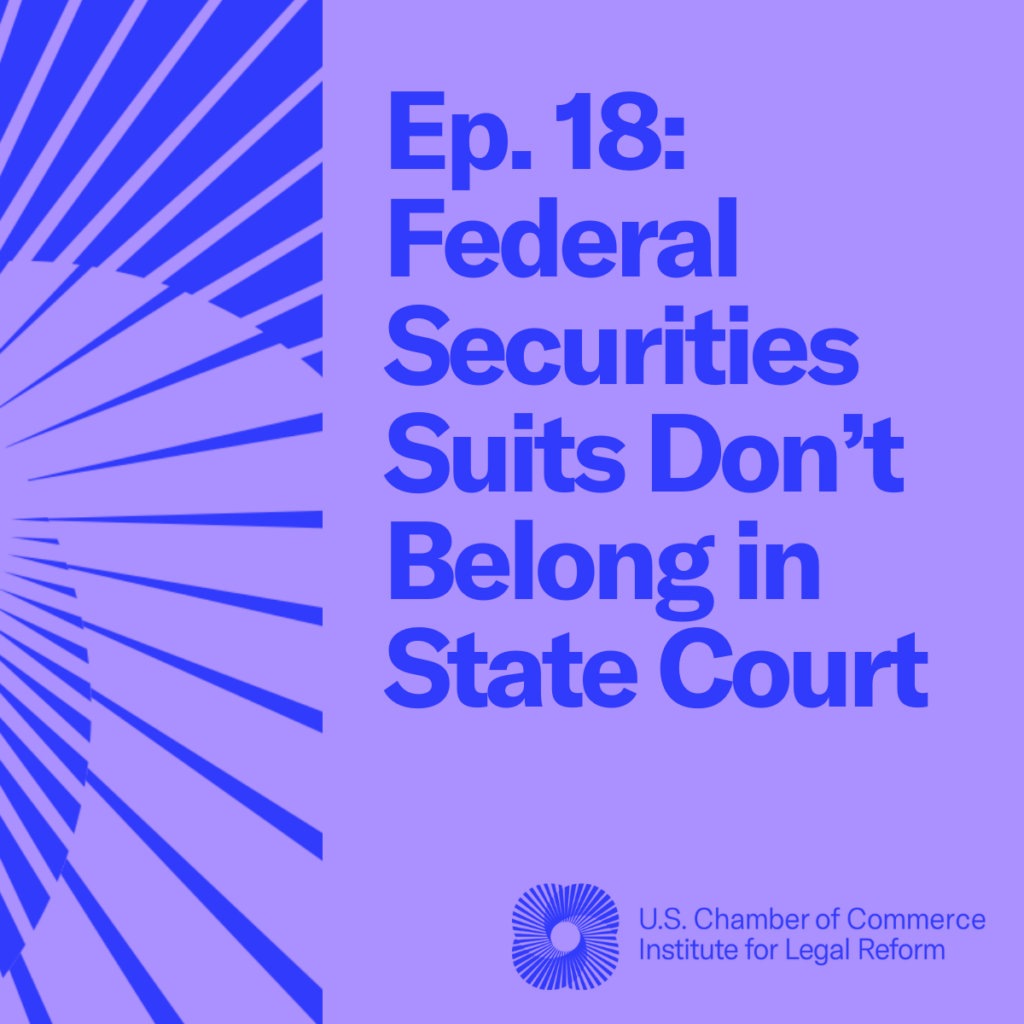Welcome to “From the President’s Desk” – a new blog from me, Harold Kim, the president of the U.S. Chamber Institute for Legal Reform. I’ll be dissecting the latest legal reform trends every week, so make sure to check back!
By: Harold Kim
Last week, we talked about how legal fees are threatening the progress made in the major opioid multidistrict litigation proceedings. Today, let’s look at another egregious example of legal fee excess that derailed litigation: the State Street case.
Four years ago, lawyers from three big plaintiffs’ firms—Labaton Sucharow, Thornton Law Firm, and Lieff Cabraser Heimann & Bernstein—asked for $75 million in fees for the work they put into a securities class action lawsuit against the State Street Corp. bank and investment firm.
Though Judge Mark L. Wolf initially signed off on the request, the Boston Globe soon found some major irregularities in the billing process. Enter Gerald Rosen, the former Chief Judge of the U.S. District Court for the Eastern District of Michigan. He was appointed by Judge Wolf as a special master to look into what exactly happened.
Judge Rosen’s report was a jaw-dropping look into the dark underbelly of massive litigation. The case, he said, “became tainted and entangled in a web of concealment and highly questionable ethical practices by experienced attorneys who should have known better.” Among other things, he found that the Labaton firm “engaged in consistent, conscious and calculated efforts to conceal” a $4.1 million payment to a Texas attorney who, according to Judge Rosen, “did not perform any substantive work or bill any time on the case.”
Rosen said it “is undisputed that [the lawyer’s] sole contribution to – and only role in – the State Street case was facilitating an introduction between Labaton and” the Arkansas Teacher Retirement System, who was the lead plaintiff. That revelation led to hearings in the Arkansas legislature on how that relationship was developed. The special master found an email from this lawyer to the Labaton firm, in which he said he was able to deliver the pension fund as a client “after considerable favors, political activity, money spent and time dedicated in Arkansas.”
Separately, the brother of the Thornton firm’s managing partner billed $200,000 in fees for his work. But, Judge Rosen said the brother’s work “did not justify” the rate he charged. This brother, Rosen found, “does not currently work, nor has he previously worked” with any of the firms. The “only connection with any of those firms – outside the State Street case – is his brother.” Judge Rosen also said that the rates Thornton “billed the shared-cost staff attorneys were rates higher than the rates at which the same staff attorneys were billed by” the other firms in the case.
The State Street saga may have finally came to an end this week, with the judge ordering the firms to pay backnearly $15 million. In addition to the order, Judge Wolf offered a scathing rebuke of the lawyers’ conduct: “this case demonstrates that not all lawyers can be trusted when they are seeking millions of dollars in attorneys’ fees.”
After two weeks of bad lawyer-fee headlines, I couldn’t agree more. The case, and the shadiness that was brought to light, is yet another example of lawyers being the real beneficiaries of massive litigation.



